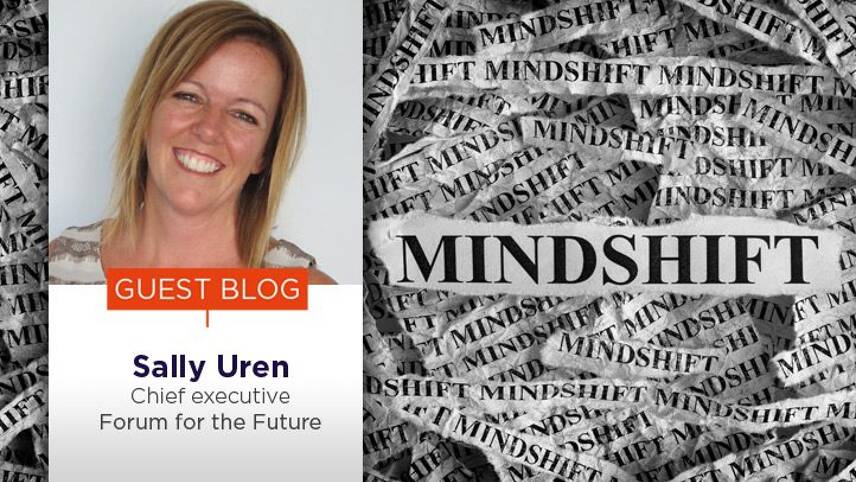Register for free and continue reading
Join our growing army of changemakers and get unlimited access to our premium content

When edie asked Forum for the Future to write a series of “practical advice” articles around our Future of Sustainability 2019 report, we leapt at the chance.
In the report we talk of seven interconnected megatrends that we expect to play a very significant role in shaping the future. Through this blog series we have distilled our insights from the research into specific actions for business leaders to drive meaningful change. With the series drawing to a close, I hope regular readers will by now better understand where your business sits in relation to each megatrend – both in terms of your impact on them, and vice versa – and have at your disposal practical ideas for taking direct action.
Ivana Gazibara’s article on tackling plastics pollution, for example, offered six lessons to bring about transformational change in one of the most talked about sustainability issues of today. In her piece on biodiversity in freefall, Jane Lawton reminded us of our absolute dependence on the world’s natural system and our duty to understand our own impact on it, before driving home the value of net positive and regenerative solutions.
From getting to grips with the effects of climate-induced migration to safeguarding the global commitments of the SDGs in a time of political and economic flux, each of the articles has been packed with solutions-focused responses for businesses.
And now for a but
Practical advice is all well and good. However, businesses that look to address the solutions suggested in this series, or anywhere else, simply as a tick-boxing exercise will never help enable real change.
If you are not by now convinced as to why nothing other than wholesale systems change is needed to drive change at the scale and pace required to avert environmental catastrophe and societal collapse, then our report and this blog series has failed.
A role for everyone
Just as it sounds, systems change is a colossal challenge. Changing the fundamental way systems operate, be they the food system or the energy system, so that they reconfigure with sustainable development as their end goal, is not going to be easy. However, right now, the greatest immediate challenge is in making everyone realise that there is an urgent need for systems change, and that everyone – no matter who or where you are – has a distinct and important role to play in making it happen.
But let’s say we’ve done our job well in this series and left you convinced of the need for systems change. So, what next? Where do you go from here? Well, I’ll answer those questions with a question of my own:
How best can you – as an individual and your organisation – use your own power and place in the system, and the skills and assets you have, to create the most change, in the shortest amount of time?
No matter what you do, or how big or small your business is, you are a part of a wider system and are directly responsible for how you act within it. You also have power. Sure, the nature and extent of that power will be partly determined by your size, your place in the system, the resources you have at your disposal, the expertise and experience of you and your staff (if you have them), and a whole other bunch of factors. But whoever you are and whatever you do, you will have power to make changes to your own business model and general way of operating, power to exert on your suppliers, power to influence your customers, power to advocate for change.
A producer in the food sector can adopt regenerative agricultural practices, which include restoring soil health, instantly making a positive difference to the food system; a designer in the apparel industry can specify sustainable, instead of conventional cotton, instantly making a difference to millions of smallholders; a pension fund managing millions of dollars can remove these dollars from high carbon industries and funnel them into renewables instead. And just look at what’s happening in the creative industries right now. As I write, #creativesforclimate has over 50 signatories from the PR and advertising world, with agencies committing to publicly disclose any ‘climate conflicts’, and with individual creatives committing to not work on fossil fuel client briefs at all.
But while you do have power and responsibility, what you don’t have is much time. Such is the depth of the sustainability challenges we face – from the climate to biodiversity to the inequality emergency – that only urgent, radical and hugely ambitious action is going to be enough to give us any hope of ensuring a decent future for the school children out marching today. So, unless you’re thinking big, there’s little point in you doing anything at all.
Which takes me to my final point, systems can only truly change when our mindsets change. Only by having a mental attitude that enables us to first accept that the current way of going about our everyday lives is locking in deeply unsustainable systems, and then to accept that we need to do things very differently in order for a new, more sustainable pattern of operating to emerge, do we stand any chance at all of meeting the Paris climate targets and fulfil the global promises underpinned in the SDGs.
Of course, changing the way we see things is not easy, and especially when it means letting go of deeply-held belief systems. But I firmly believe that having the right mindset is the holy grail of sustainable leadership that we must all strive for. With it, everything is possible.
Dr Sally Uren OBE is Chief Executive at Forum for the Future



Please login or Register to leave a comment.